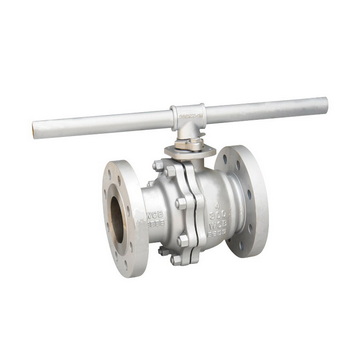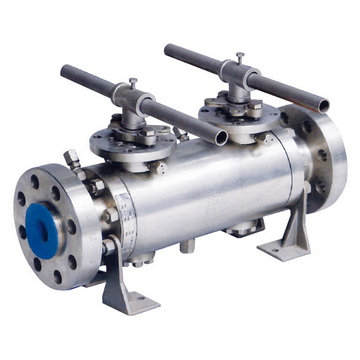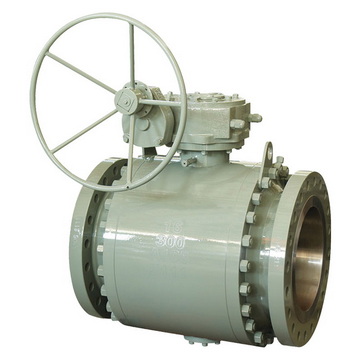Top Ball Valve Seat Manufacturers and Suppliers in Japan
Content Menu
● Importance of Ball Valve Seats
● Overview of Japan's Ball Valve Industry
● Top Ball Valve Seat Manufacturers and Suppliers in Japan
>> Kyoto Valve & Control (KVC)
● Technological Advances in Japanese Ball Valve Seats
● Applications of Japanese Ball Valve Seats
● Why Choose Japanese Manufacturers for Ball Valve Seats?
● FAQs
>> 1. What materials are most commonly used in Japanese ball valve seats?
>> 2. Can Japanese manufacturers customize ball valve seats for specific industry needs?
>> 3. Which international standards do Japanese ball valve seats comply with?
>> 4. What advantages do metal-seated ball valve seats offer?
>> 5. Are there environmentally friendly options available among Japanese ball valve seats?
Introduction
Japan is globally renowned for its advanced manufacturing technologies and rigorous quality standards, especially in the realm of industrial components. One critical element of these components is the ball valve seat, which directly influences the valve's sealing performance, durability, and operational safety. Japanese manufacturers excel in designing and producing high-performance ball valve seats that meet the stringent demands of sectors such as oil and gas, seawater desalination, offshore drilling, and pharmaceuticals. This article highlights the leading ball valve seat manufacturers and suppliers in Japan, delving into their product innovations, industry applications, and the reasons why global buyers prefer Japanese OEM partners for their ball valve seat requirements.

Importance of Ball Valve Seats
Ball valve seats act as the sealing interface between the spherical ball and the valve body, preventing fluid leakage during valve operation. The choice of seat material and design is paramount because it affects wear resistance, chemical compatibility, pressure and temperature tolerance, and overall valve lifespan. In industries where valves face aggressive media or extreme conditions—like petrochemical plants or offshore platforms—the durability and sealing integrity of the seat are vital for safety and cost-effective operation.
Japanese manufacturers develop ball valve seats using materials ranging from stainless steel and specialized metal alloys to high-performance polymers such as PTFE and FDA-compliant compounds. Innovative seat geometries and surface treatments, such as laser cladding and graphite impregnation, enhance seat longevity and minimize operational issues like cavitation and erosion.
Overview of Japan's Ball Valve Industry
Japan's ball valve industry is a mature sector backed by extensive metallurgy expertise, precision machining capabilities, and continuous innovation. With decades of experience, these manufacturers produce ball valve seats that comply with international standards including API, ANSI, JIS, and ISO. Japan's industrial ecosystem supports research collaboration with top universities, driving cutting-edge developments in valve seat materials and designs suitable for next-generation applications.
Leading Japanese ball valve manufacturers prioritize environmental sustainability by adopting processes to reduce emissions and increase recyclability of materials. Their commitment to quality is supported by advanced testing facilities capable of simulating extreme pressure up to 2000 bar and cryogenic temperatures as low as -196 °C.
Top Ball Valve Seat Manufacturers and Suppliers in Japan
Kyoto Valve & Control (KVC)
Established in 1952 in Kyoto, KVC evolved into a world-leading producer of industrial valves, famous for its “K-Seal™” floating ball valve seat technology that minimizes fugitive emissions and enhances corrosion resistance. KVC's seats are tailored for cryogenic, high-pressure, and chemically aggressive environments, making them preferred in petrochemical and LNG applications. The company exports globally with comprehensive OEM services ready to customize valve seats for unique operational needs.
Hisaka Works, Ltd.
Hisaka, based in Osaka since 1965, is recognized for its “CleanLogic™” line of metal-free, FDA-approved ball valve seats designed for the pharmaceutical and food industries. Their seats provide high hygienic standards while maintaining robust sealing performance. Hisaka couples traditional alloy metallurgy expertise with digital diagnostics and automation, broadening the performance and service life of their valve seats.
NBV Co., Ltd.
NBV, headquartered in Nagoya since 1971, pioneered self-lubricating valve seat materials which dramatically reduce maintenance cycles in high-duty sectors. Their “EcoSeal™” soft-seal valves are optimized for emerging clean energy usage, such as hydrogen fueling stations. NBV continually collaborates with academic research in materials science and additive manufacturing to innovate valve seat technology.
KITZ Corporation
Operating since 1954 in Tokyo, KITZ made Japan's first all-cast stainless steel ball valve with its breakthrough “SecurSeat™” metal seat technology facilitating bubble-tight shutoff in natural gas industries. KITZ integrates smart valve technologies, combining torque sensing and predictive maintenance with highly abrasion-resistant seats that excel in slurries and viscous fluid handling. Sustainability initiatives include recycled metal valve components and carbon-neutral manufacturing.
NDV Co., Ltd.
NDV, from Fukuoka and established in 1950, specializes in high-integrity, double-block-and-bleed (DBB) trunnion-mounted ball valves. Their valve seats meet the strictest offshore standards with designs optimized through computational fluid dynamics for minimal pressure drop and increased cavitation resistance. NDV's digitally automated production uses laser cladding to provide superior wear resistance.

Technological Advances in Japanese Ball Valve Seats
Over recent years, Japanese suppliers have integrated advanced materials technology and production techniques in their ball valve seats. Metal-seated valves have gained popularity due to their superior wear and heat resistance, essential for offshore oil and gas applications. Laser cladding extends seat durability by applying hard coatings that resist corrosion and erosion.
Polymer and composite seat materials such as PTFE blends, reinforced with graphite or other fillers, balance chemical resistance with sealing softness, ideal for food processing and pharmaceutical valves. Furthermore, manufacturers focus on reducing environmental impact with recyclable seat materials and greener manufacturing processes.
Applications of Japanese Ball Valve Seats
Japanese ball valve seats serve critical roles across diverse industrial fields:
- Upstream, midstream, and downstream oil & gas operations requiring robust sealing against high pressures and temperatures.
- Seawater desalination plants leveraging corrosion-resistant seats for saltwater exposure.
- Offshore drilling platforms needing reliable metal-seated, DBB valve seats for safety in extreme marine conditions.
- Pharmaceutical and food-grade valves demanding metal-free, FDA-compliant seat materials for hygienic control.
- Industrial automation and semiconductor processing with ultra-pure water valves using self-lubricating and soft seats.
Why Choose Japanese Manufacturers for Ball Valve Seats?
Japanese manufacturers are trusted worldwide for their consistent product quality, adherence to global standards, and dedicated OEM customization. Their extensive R&D programs result in valve seats that not only meet but exceed operational requirements for performance and safety. With global sales and service networks, Japanese companies provide excellent technical support and after-sales servicing.
Moreover, Japan's focus on environmental sustainability and digital factory automation ensures production of valve seats with lower carbon footprints and traceable quality, enhancing supply chain reliability for international buyers.
Conclusion
Japan's ball valve seat manufacturers and suppliers represent the pinnacle of precision engineering and innovative design. Companies like Kyoto Valve & Control, Hisaka Works, NBV, KITZ Corporation, and NDV Co. combine decades of expertise with cutting-edge technology to produce valve seats that deliver unmatched reliability and performance across challenging industrial environments.
Their commitment to OEM excellence makes Japanese suppliers ideal partners for global customers seeking tailored, high-quality ball valve seats that meet stringent standards and demanding application needs. Engaging Japanese manufacturers is a strategic choice to ensure longevity, safety, and operational efficiency in critical valve systems worldwide.
To experience the superior quality and innovation of Japanese ball valve seats for your industrial projects, connect with our recommended manufacturers today. Request detailed product catalogs, discuss custom design requirements, and explore competitive OEM cooperation opportunities. Secure your operations with trusted Japanese ball valve seat suppliers offering cutting-edge technology and exceptional service.

FAQs
1. What materials are most commonly used in Japanese ball valve seats?
Japanese manufacturers primarily use stainless steel, high-performance metal alloys, PTFE, graphite composites, and FDA-approved polymers depending on the valve's pressure, temperature, and fluid compatibility requirements.
2. Can Japanese manufacturers customize ball valve seats for specific industry needs?
Yes, most leading Japanese companies offer extensive OEM services to design seats tailored to unique operational conditions such as high temperature, cryogenic service, and corrosive or sanitary environments.
3. Which international standards do Japanese ball valve seats comply with?
Japanese valve seat manufacturers ensure compliance with standards like API, ANSI, ISO, and JIS to guarantee global compatibility, safety, and performance assurance.
4. What advantages do metal-seated ball valve seats offer?
Metal seats provide enhanced wear resistance, higher temperature tolerance, and superior performance in abrasive and corrosive media, reducing maintenance frequency and downtime.
5. Are there environmentally friendly options available among Japanese ball valve seats?
Yes, several manufacturers incorporate recycled metals, eco-friendly polymers, and sustainable manufacturing processes to offer valve seats that meet environmental standards while maintaining high performance.
Hot tags: Top Ball Valve Seat Manufacturers Japan, Best Ball Valve Seat Suppliers In Japan, Industrial Ball Valve Seat Manufacturers Japan, High Quality Ball Valve Seat Suppliers Japan, Leading Ball Valve Seat Manufacturers In Japan, Precision Ball Valve Seat Suppliers Japan, Custom Ball Valve Seat Manufacturers Japan, Durable Ball Valve Seat Suppliers In Japan, Wholesale Ball Valve Seat Manufacturers Japan, Trusted Ball Valve Seat Suppliers In Japan